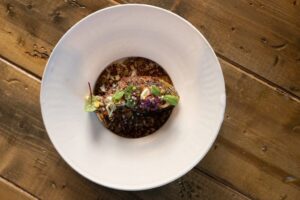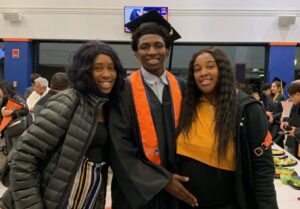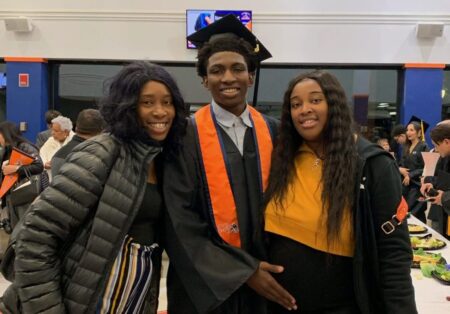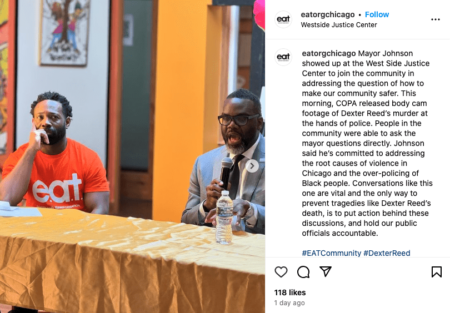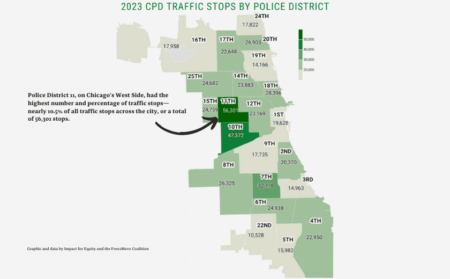A Cook County judge on Thursday threw out the murder convictions of two brothers who allege ex-Det. Reynaldo Guevara framed them at the behest of another cop who was later described as “the most corrupt” officer ever prosecuted in northern Illinois.
After Judge Joanne Rosado announced her ruling, Cook County prosecutors announced they would not seek to put the brothers on trial again.
Advertisement
“You are going to be released,” Rosado told the brothers, who participated via videoconference from prison downstate. “… I apologize for the misconduct that was done to you, and how you have suffered the last 25 years.”
After the hearing the brothers’ parents, wearing t-shirts marked “HERNANDEZ BROTHERS INNOCENT,” were allowed into the courtroom to say hello to their sons on camera.
Advertisement
“See you soon!” one brother said, as they cried and waved.
Rosado’s decision marked the third time in less than a week that a Guevara-related case was thrown out at the Leighton Criminal Court Building. Guevara accuser Jose Cruz had his conviction overturned Monday after prosecutors agreed not to fight his efforts for a new trial; and on Friday, a different judge granted David Colon’s request for a new trial after a series of hearings last year.
Rosado from the bench described Guevara as “a lying, scheming person,” and said the brothers had “by far earned the right to a new trial.”
Rosado’s decision came after a three-day hearing last month. Cook County prosecutors argued that their convictions should remain intact, while the Hernandez brothers’ attorneys argued their clients were framed.
The brothers were convicted in separate trials for murder, attempted murder and aggravated battery in the 1997 shooting that killed Jorge Gonzalez. Rosendo Hernandez was sentenced to a total of 75 years, while Juan was sentenced to 86, according to a court filing.
Perhaps the most explosive allegation over the course of last month’s hearings came from a former federal cooperator, Fred Rock. Rock testified that notoriously corrupt drug-running cop Joseph Miedzianowski had it in for Juan Hernandez because he thought Hernandez had stolen drugs from an associate. Miedzianowski told Rock that Guevara was the guy who would help him “get” Hernandez, Rock testified.
Advertisement
Miedzianowski was later convicted of racketeering and drug conspiracy and is serving a life sentence in a federal prison downstate.
Both brothers took the witness stand last month and flatly denied any involvement in the shooting, repeating their alibis: Rosendo was at a bowling alley, Juan was at a pizza parlor helping prepare for a quinceañera. Guevara allegedly tweaked those alibis in the reports he wrote after interviewing the brothers in order to make them less credible.
Rosado also viewed part of a deposition Guevara gave in April, in which he invoked his Fifth Amendment right to remain silent dozens of times in just a few minutes — even when asked seemingly benign questions such as whether he knew the Hernandez brothers.
Of the multiple eyewitnesses who testified at the brothers’ trials, only two took the stand again last month. One, Jose Gonzalez, said he was outside on North Mobile Street that night in 1997 when three men came up, two of whom fired shots.
Gonzalez got a good view of the shooters’ faces and identified them in photos, a lineup and at the Hernandez brothers’ trials, he said, maintaining that nobody influenced him or told him whom to pick out.
The Hernandez brothers’ attorneys insinuated that his identification could not be trusted: The lighting was poor, the situation was brief and highly stressful, and Gonzalez was only 13 years old at the time, they said.
Advertisement
While the Hernandez brothers were seated a few yards away from Gonzalez in the small courtroom, neither set of attorneys asked Gonzalez if he could identify anyone in the room as the shooters.
The other eyewitness, Daniel Violante, testified this week that he had told police from the start he never saw the shooters’ faces, and he only identified them at trial because the victim’s family had said they were the gunmen so he figured they were correct.
Afternoon Briefing
Daily
Chicago Tribune editors’ top story picks, delivered to your inbox each afternoon.
Prosecutors sought to cast doubt on his credibility, noting that he signed an affidavit recanting his identification in 1998, then later went on to identify the brothers at their trials anyway.
In addition, neither Violante nor Gonzalez ever claimed Guevara leaned on them or threatened them to finger a specific suspect, as Guevara has been alleged to do in multiple other cases. Prosecutors argued that means the Hernandez brothers’ case does not fit the same pattern.
But Guevara has also been accused of lying on police reports to make suspects’ alibis seem weaker, as he is alleged to have done in this case, attorneys noted.
Dozens of people have accused Guevara, now retired, of manipulating witnesses, fabricating evidence and framing suspects over the course of his career. He has repeatedly asserted his Fifth Amendment right to remain silent when questioned about the alleged wrongdoing.
Advertisement
When Guevara did take the stand in Cook County court under a grant of immunity in 2017, Judge James Obbish found his testimony so untrustworthy that he found Guevara “has now eliminated the possibility of being considered a credible witness in any proceeding.”
Multiple wrongful convictions have been linked to Guevara, and the city has faced lawsuits over his alleged conduct.
mcrepeau@chicagotribune.com
